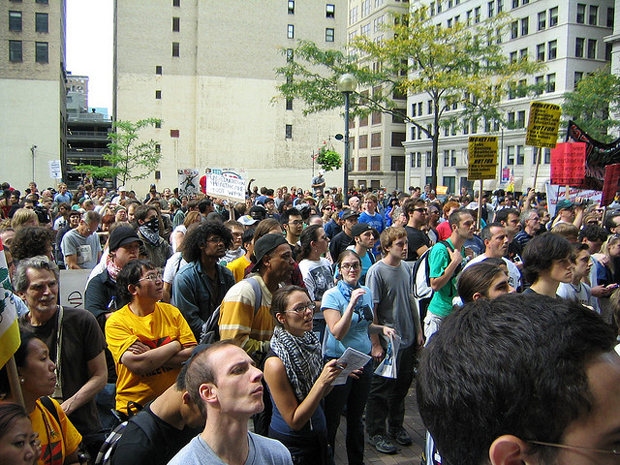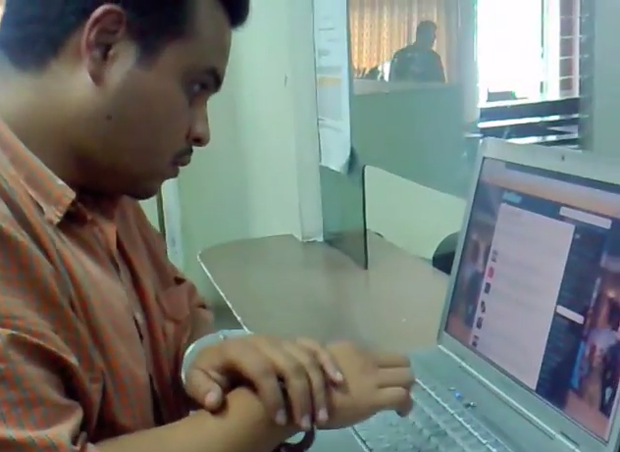15 Mar 2015 | Bahrain, Campaigns, Middle East and North Africa, mobile
Index on Censorship award winner Nabeel Rajab had the final hearing on his appeal delayed for a third time, until April 15. Rajab, who is appealing his sentence over a tweet, remains under a travel ban.
“It is clear that Bahrain government can’t simply send Bahrain’s leading human rights defenders to jail while the United Nation’s human rights council in Geneva is still in session. Intimidation against him will not stop, they don’t want to end up his case as it will lead to lifting the travel ban, which is something Bahraini government very afraid of”, Sayed Alwadaei, director of advocacy for Bahrain Institute for Rights and Democracy, told Index in an email.
Index’s CEO Jodie Ginsberg said that “the continual postponements of Nabeel’s court dates is another example of how justice is not being served in Bahrain. While his case is still pending, Nabeel is not free to travel, and kept in perpetual uncertainty about his future. And all because Nabeel expressed an opinion. We call on the Bahraini authorities to drop all charges against him and for the international community to ensure that Bahrain meets its international commitments on human rights.”
In January, Rajab, the president of the Bahrain Center for Human Rights, was handed down a six-month suspended sentence pending a fine over the following tweet:
Bahrain’s ministry of interior and ministry of defence both alleged the tweet “denigrated government institutions”. Rajab was released on bail while appealing the verdict, the outcome of which was expected on March 15 before being delayed a month.
Rajab, one of Bahrain’s most prominent human rights activist, has been continuously targeted by authorities in relation to his human rights campaigning work. He was released from prison last May, where he spent two years on charges which included writing offensive tweets and participating in illegal protests.
On 12 March, Rajab wrote to Federica Mogherini, the European Union’s foreign policy chief. Calling for further international support for himself and his fellow human rights activists, he said he was “deeply disappointed by the EU’s lack of strong action to back up its human rights commitments in its foreign policy”.
He also wrote of his latest questioning by police, in early March. He says he was accused of inciting hatred towards the regime, for, among other things “accusing the police and ministry of interior with torturing detainees” and “calling the events happening in Bahrain a revolution”.
“These accusations cannot more obviously target my freedoms of expression and association,” Rajab stated. “Moreover, they are directly related to my work as a human rights activist.”
Echoing Rajab, Alwadaei believes the response from the international community could have significant impact on Rajab’s case: “I strongly believe the moment they [Bahraini authorities] feel they have less international pressure on his case he will be sent directly to prison.”
This article was posted on 13 March 2015 at indexoncensorship.org
29 Jan 2015 | Europe and Central Asia, mobile, News and features, United Kingdom

Sometimes, when I’m bored, or a bit down and feel the need to believe there are people in the world who are worse to me (worse, not worse off), I turn to TripAdvisor.
I’m sure there are perfectly reasonable people on TripAdvisor. Perfectly normal people, who may have enjoyed a dinner somewhere, or made friends with the barman at their holiday hotel, and thought “I must tell the world! These hardworking service industry people deserve my support.” I’m sure there’s lots of that going on on TripAdvisor (other review sites are available).
These happy people do not concern me. No, these are not the reviews I want to read. I seek out the one and two stars which are often written by the worst people in the world.
Petty, greedy, stingy, paranoid and usually convinced of their own way with imagery. Imagine eating out with these people.
The waitress approaches, smiling (as they often do):
“Would you like to see the wine list?”
“Yes please.” (List is delivered. Exit waitress).
“What do you think she meant by that?”
“What?”
“Asking if we wanted the wine list like that.”
“Like what?”
“Didn’t you hear her?”
“Yes. She said ‘Would you like to see the wine list?’ They often do.”
“But it was the waaaayyyy she said it.”
“Uh.” (Scans room for exits, sees only cheery floor staff).
On goes the evening. Everything is noted. The wine is too cold, the food too hot. Side orders are too expensive, there’s a draft only your dining partner can perceive. The service is too slow/fast. Somehow, in spite of it being a busy night, the waitress has been giving your companion a Paddington hard stare all night.
No, you certainly will not be having dessert, not at these prices.
The bill arrives, and is divided down to the last pea (“You got more ice in your tap water than I did”).
You depart, he on his bus, you on yours. On his way home, he cancels his debit card because he’s sure the restaurant people will have cloned it. You reach home and climb into bed, despondent. His fun though, has just begun.
Pouring himself a decent measure of the large whisky he hides when visitors are around, he settles on the sofa and logs into TripAdvisor (other review sites etc).
“Our trouble started,” he types. “When my friend called to book the table.” (You are now implicated).
“Having read my neighbour Giles Coren’s fine review in the Times of London, I was expecting high things of Brasserie Sarkozy. Methinks Coren the Younger’s judgement may have been clouded by one too many stiffeners over lunch, perhaps with his delightful sister, Victoria (with whom I would be only too happy to ‘Only Connect’!)…”
Why are you friends with this person again? On he goes. The broccoli was insufficiently purple. The steak (always steak) was “inferior” to the Specially Selected 30 Day Matured Aberdeen Angus Sirloin you get in Aldi for just £5.99. The staff were too casual, the room too stuffy, the building in the wrong neighbourhood… And the prices? Is this Monte Carlo?
And he wouldn’t have minded that much if it wasn’t for the rat he almost certainly saw in the gents.
Your friend clicks “one star” closes down his computer, and heads for bed, to dream of the panic when the restaurant’s owners (shysters and rip-off merchants every last one of them) discover his latest mighty internet onslaught.
One wonders if your friend (let’s call him gourmand_Gareth, as that’s what he calls himself), drunk on power, has considered the consequences. Particularly the consequences of the claim about the rat in the toilets, which, while he didn’t quite intentionally make up, is a bit of a misreport. Specifically, he’s moved the rat’s location from “in his imagination” to “standing on the cistern, singing Blur’s classic Britpop ballad To The End”. It didn’t happen. It is wrong to publish a review saying it did. It’s quite probably libellous. In fact, the chef is on the phone to his lawyer right now.
I don’t like your friend (I suspect you don’t either, but you’ve known him since school when… Actually you didn’t like him then either, did you?), but I don’t want him to end up in trouble.
But this is what could happen. While there’s only ever been one successful libel case against a restaurant reviewer in the United Kingdom (Goodfellas v Irish News, 2007, overturned on appeal, fact fans), there has been a rise in libel cases involving social media and the web. According to the Independent, there was a 300 per cent increase between 2012-13 and 2013-14 alone.
In spite of the work done by Index on Censorship and others in improving England’s libel laws, being sued — even being threatened with libel action — is still a deeply unpleasant experience, and quite possibly an expensive one too. Meanwhile, continued threats to the concept of the “mere platform” (that is to say, a site such as TripAdvisor, which allows people to post content without pre-moderation, should not be held legally liable) face threats from the actions of Max Mosley and others who are determined that the web be a more tightly controlled space.
Pre-moderation (editing, in effect) is anathema to how we use the web every day. Try to imagine having to send every tweet to some poor bugger in an office in Dublin who then has to decide whether it gets past every single restriction on speech in the European Union before he publishes it to your page. Not going to happen, no matter how many European courts believe it should.
But on the other side of the coin, people like your friend Gareth should at the very least be aware of what the laws are, and what risks they run. The past few years have seen countless cases of people facing civil and criminal sanction for tweets where they clearly had no idea what the law was (*innocent face*). This is not a plea for more laws, or even more self-censorship. But one does wonder if basic education in what the potential pitfalls of online interaction are, is necessary. Index and its partners are bringing out guides for artists to free speech and the law, but what about the rest of us? It’s too late for poor, silly Gareth.
This article was posted on January 29 2015 at indexoncensorship.org
23 Jan 2015 | News and features
Bahrain
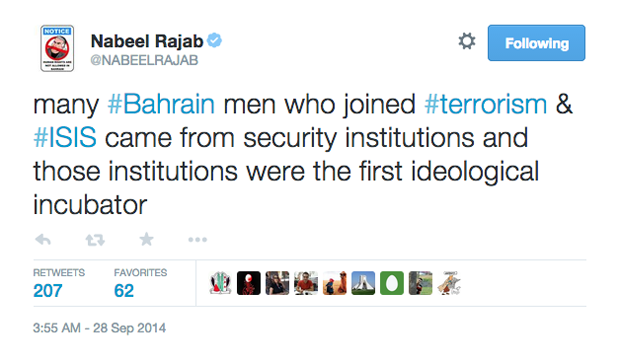
This week, prominent Bahraini human rights activist Nabeel Rajab was handed down a six month suspended sentence over a tweet in which both the country’s ministry of interior and ministry of defence allege that he “denigrated government institutions”. Rajab was only released last May after two years in prison, over charges that included sending offensive tweets. His experience is not unique in Bahrain. In May 2013, five men were arrested for “insulting the king” via Twitter.
Turkey
A former Miss Turkey was recently arrested for sharing a satirical poem criticising the country’s President Recep Tayyip Erdogan on her Instagram account. She is set to go on trial later this year. Turkey has a chequered relationship with social media, temporarily banning both Twitter and YouTube in the wake of the Gezi Park protests, in large part organised and reported through social media. In 2013, authorities arrested 25 individuals for spreading “untrue information” on social media.
Saudi Arabia
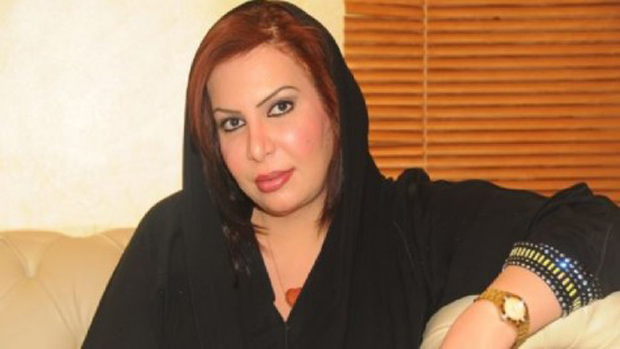
(Photo: Gulf Centre for Human Rights)
In late 2014, women’s rights activist Souad Al-Shammari was arrested during an interrogation over some of her tweets. The charges against her include “calling upon society to disobey by describing society as masculine” and “using sarcasm while mentioning religious texts and religious scholars”, according to the Gulf Centre for Human Rights.
France
![(Photo: « Source : Réseau Voltaire » [CC BY-SA 3.0 (http://creativecommons.org/licenses/by-sa/3.0)], via Wikimedia Commons](https://www.indexoncensorship.org/wp-content/uploads/2015/01/Dieudonné_Axis_for_Peace_2005-11-18.jpg)
(Photo: Réseau Voltaire [CC BY-SA 3.0], via Wikimedia Commons)
Following the series of terrorist attacks in Paris in early January, at least 54 people have been detained by police for “defending or glorifying terrorism”. A number of the cases, including against comedian Dieudonne M’bala M’bala, are believe to be connected to social media comments.
Britain

A 22 year old man was arrested in for “malicious communication” following Facebook messages made in response to the murder of soldier Lee Rigby, and another user was arrested after taunting Olympic diver Tom Daly about his dead father. More recently, police arrested a 19-year-old man over an “offensive” tweet about a bin lorry crash in Glasgow that killed six people. TV personality Katie Hopkins, known for her controversial tweets, was also reported to Scottish police following some tasteless tweets about about Scots. The incident prompted Scottish police the to post their now infamous tweet declaring they would continue to “monitor comments on social media“.
China
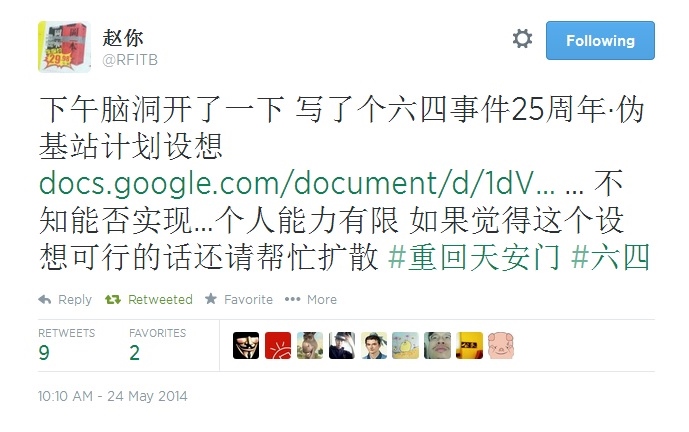
Online activist Cheng Jianping was arrested on her wedding day in 2010 for “disturbing social order” by retweeting a joke by her fiance. She was sentenced to one year of “re-education through labour”. Twitter is officially banned in China, and microblogging site Weibo is a popular alternative. In 2013, four Weibo users were arrested for spreading rumours about a deceased soldier labelled a hero and used in propaganda posters. The four were said to have “incited dissatisfaction with the government”, according to the BBC.
Australia
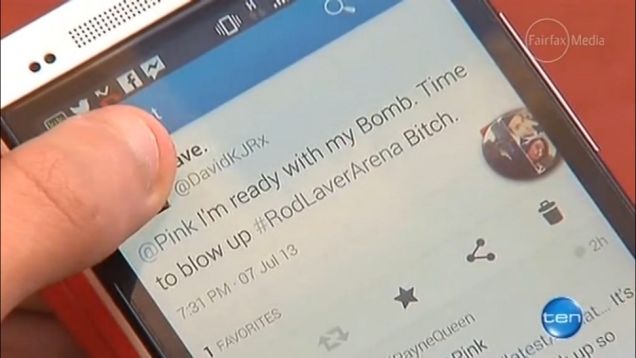
A teen was arrested prior to attending a Pink concert in Melbourne for tweeting: “I’m ready with my Bomb. Time to blow up #RodLaverArena. Bitch.” The tweet referenced lyrics from the American popstar’s song Timebomb.
India
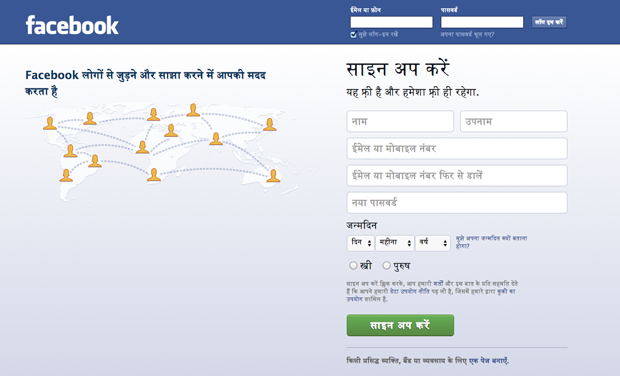
An Indian medical student was arrested in 2012 over a Facebook post questioning why her city of Mumbai should come to a standstill to mark the death of a prominent politician. Her friend was arrested for liking the post. Both were charged with engaging in speech that was offensive and hateful.
United States
Back in 2009, a New York man was arrested, had his home searched and was placed under £19,000 bail for tweeting police movements to help G20 protesters in Pittsburgh avoid the officers. According to Global Voices, it is unclear whether his actions were actually illegal at the time.
Guatemala
A man was arrested in 2009 for causing “financial panic” by tweeting that Guatemalans should fight corruption by withdrawing all their money from banks.
This article was posted on 23 January, 2015 at indexoncensorship.org
27 Nov 2014 | Americas, Digital Freedom, Europe and Central Asia, Ireland, News and features, United Kingdom, United States
How did people organise protests before the internet? How did riots happen? How did terrorists carry out attacks? All these things definitely happened. I remember them distinctly. In the days before the world wide web, all sorts of things occurred without anyone “taking to social media” or “using sophisticated communications technology” (phones).
But current discussions are premised on the idea that the web in itself has created civil disorder and even terrorism.
In Ireland, as protests have got to the point where government ministers can barely leave the house without being confronted by citizens unhappy with proposed household water metering, commentator Chris Johns suggested that “Social media has brought more illness to Ireland than Ebola has. Anarchists, extremists and all-round loonies can find a voice and organisational structure – if only for a decent riot – amidst a political fragmentation that rewards those who shout the loudest.”
Considering there have been no recorded incidents of Ebola in Ireland, the first part of this assertion could be technically true; or we could say that social media has brought the same amount of illness to Ireland — none. As for the anarchists and loonies, well, they have always been with us, and had some success in organising before Facebook came along.
Across the Atlantic, St. Louis County Prosecuting Attorney Robert McCulloch said that “nonstop rumours on social media” had significantly hampered the investigation into the killing of Michael Brown, and contributed to his decision not to prosecute. This in the land of the First Amendment, where the justice system long ago learned to deal with hearsay.
Back over the ocean again, the UK’s Intelligence and Security Committee report into the murder of Drummer Lee Rigby by Michael Adebolajo and Michael Adebowale pointed to a Facebook message sent by Adebowale, in which he expressed a desire to kill a soldier. In spite of several failures by the intelligence services, who were long aware of Adebowale’s tendencies, Facebook faced criticism for not “flagging up” the message to the security forces. Social media to blame once again.
Why do we do this? Why must every single occurrence now have a social media angle?
Partly because everything many of us do now does have an internet angle. The web is simply part of human interaction for millions.
But for some it seems foreign. My generation is the last that will remember life before the internet.
For all that, it is still shockingly new. I’m not just saying that to make myself feel younger. Some people my age and older (“digital immigrants”, apparently, which makes me a double immigrant) have adapted reasonably well to our new environment. Some really haven’t. I have watched a QC attempt to explain the difference between a reply and a direct message on Twitter. It was as you’d expect, equal parts cute and infuriating, but it did also make one think how insanely fast we have adapted to certain technologies, and how some people are left behind.
When was the last time they changed Facebook? I honestly couldn’t say. But remember when complaining about changes to Facebook was a thing? We used to object; now we install our own mental updates and carry on, using new features and forgetting what went before. I have literally no idea what Facebook looked like when I joined it. Or Twitter for that matter.
And I, remember, am an immigrant, not a native. There are still a lot of people who don’t want to emigrate to the web, because they think it’s full of conspiracy theories and pornography. And there are some who occasionally “log on” to the internet, and then “log off” again, like an overnight work trip to Leicester.
So when something happens that involves an email, a tweet, a Facebook update or whatever, for some that is still of interest in itself.
Will this ever end? Hopefully. As time goes on, the distinction between the internet and THE INTERNET will become clearer. THE INTERNET is a culture; the place where the likes of Doge and Grumpycat come from, and all their predecessors (I still have a soft spot for Mahir “I Kiss You” Çağrı. Look it up, youngsters). The internet is simply a communications tool, like millions upon millions of tin cans joined with taut string. When we can get this a little clearer in our heads, then finding a web angle for every occasion will feel a bit silly, like blaming Bic for poison pen letters.
That is not to say that we should take the web for granted, or become blase about its use and abuse. But we must treat it as simply a part of the environment. Essentially, we have to stop thinking about things happening “on the internet”. There is no “internet freedom” — there is just freedom. There is no “internet privacy” — there is privacy. There are no “internet bullies” — there are bullies.
Put simply, we need to ban the word “internet”.
This article was published on 27 November 2014 at indexoncensorship.org






![(Photo: « Source : Réseau Voltaire » [CC BY-SA 3.0 (http://creativecommons.org/licenses/by-sa/3.0)], via Wikimedia Commons](https://www.indexoncensorship.org/wp-content/uploads/2015/01/Dieudonné_Axis_for_Peace_2005-11-18.jpg)




